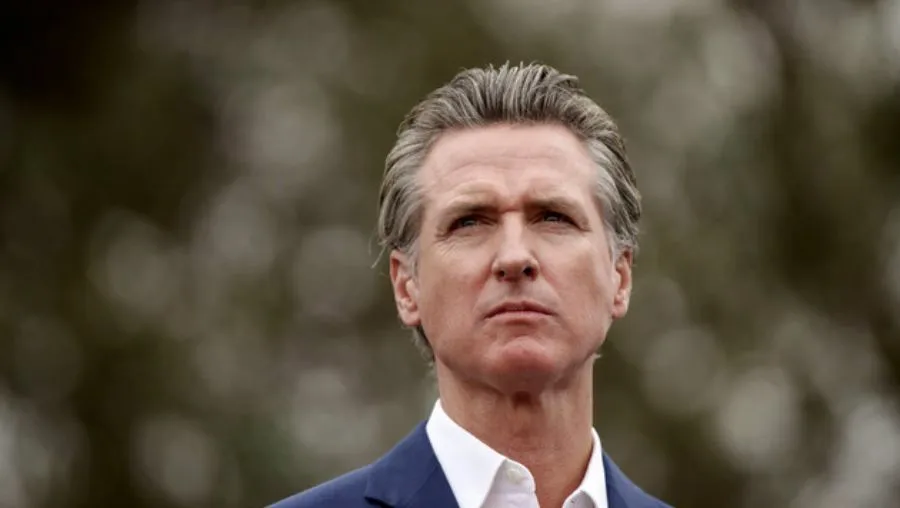For a long time, we have documented the growing tensions between the federal government in Washington and the state of California only in passing, without placing the escalation at the center. Too much took place behind closed doors, the legal maneuvers were too opaque, the silence on both sides too calculated. But the most recent letters exchanged between the US Department of Justice and the office of Governor Gavin Newsom mark a new quality in the conflict - a front that emerges in the middle of the rule of law and can no longer be ignored. The trigger is a letter from Attorney General Pam Bondi, dated August 13, 2025, in which she openly threatens California with prosecution. Officials at the state and local level, according to the accusation, would by implementing California laws "facilitate illegal immigration" and thereby make themselves liable to prosecution. The attack is aimed at the centerpiece of California’s migration policy - the sanctuary regulations that protect against the takeover of local authorities by federal immigration.


The response from Sacramento was not long in coming. On August 19, David Sapp, legal adviser in the office of Gavin Newsom, replied with a letter whose tone is both sharp and legally unshakable. California, Sapp wrote, is not only legally protected but acts in accordance with binding federal law. The Court of Appeals for the Ninth Circuit has repeatedly confirmed that California has the right to exclude its authorities from active participation in federal immigration. Precedents such as United States v. California and City and County of San Francisco v. Barr had already brought down Washington’s attempts to exert pressure through the withdrawal of funds or criminal allegations. The letter that David Sapp sent on August 19, 2025, to US Attorney General Pam Bondi reads like a legal slap in the face. After Bondi had threatened on August 13 with "criminal prosecutions against state and local officials" who allegedly "use their official position to obstruct federal immigration enforcement", California’s legal adviser countered with devastating precision: these threats were not only legally baseless, but could themselves boomerang on the federal prosecutors involved. Sapp explicitly cites Rule 3.1 of California’s professional rules, which states that lawyers may not initiate proceedings that "have no probable cause". Even more sharply formulated is Rule 3.8 for prosecutors: they have "the responsibility of a minister of justice" - anyone who therefore brings proceedings despite better knowledge violates fundamental ethical obligations.


The legal reasoning that Sapp presents is overwhelming. He refers to United States v. California, where the Court of Appeals for the Ninth Circuit made clear in 2019 that California "has the right under the Tenth Amendment to refrain from supporting federal efforts". In the case City and County of San Francisco v. Barr, the Justice Department’s attempt to withhold funding failed - the court dismissed the argument as "legally unfounded". These precedents are binding, and any California lawyer who participates in prosecutions that ignore this established case law risks, according to Sapp’s unmistakable warning, losing his license and could be confronted with an ethics complaint before the California Bar Association.
The explosiveness of this exchange of letters lies not only in the political clash but in the legal dimension: Sapp explicitly refers to the rules of the California Bar Association, which prohibit lawyers and especially prosecutors from pursuing or even threatening proceedings if there is no sufficient basis. Threats like those of the federal justice system could thus not only be constitutionally questionable but themselves constitute an ethical violation - up to disciplinary consequences for those federal prosecutors who participate in such threats. This clash is not the first of its kind. Washington has already tried before to put California in its place with similar methods. In the years 2018 to 2020, a bitter dispute erupted over auto emission standards, in which the federal government wanted to deny California its right to set stricter limits for exhaust gases. In the end, the courts prevailed: California retained its competence, while the federal government had to accept a painful defeat. The same was true of the attempt to legally slow down California’s climate laws and programs to promote renewable energy - here too Washington was put in its place.
The pattern is unmistakable: whenever California sets its own standards - whether in climate protection, health care, or the protection of migrants - the federal government responds with threats, lawsuits, or the threat of financial sanctions. But just as regularly it fails at the fact that the federal system grants states rights that cannot easily be overridden.
What makes this conflict particularly explosive is the sheer dimension in which it is being fought. California is by no means just any state, but the fourth largest economy in the world - ahead of Germany. Only the US as a whole, China, and Japan have a higher gross domestic product. So whoever wants to put California in its place is not only taking on a regional actor but a global economic power. The attempt to undermine the political and legal autonomy of such a giant unfolds far greater explosive force than the appearance of a domestic dispute would suggest.
The Intel takeover and Trump’s contradictory industrial policy
Parallel to this legal battle, an economic policy drama of historic dimension is unfolding. The Trump administration is negotiating a ten percent government stake in Intel - of all things, that Republican government that stages itself as the guardian of the free market. Commerce Secretary Howard Lutnick justifies this with remarkable chutzpah: the 7.8 billion dollars from Biden’s CHIPS Act were a "giveaway", America should instead "get the benefit of the deal". Intel, which posted a loss of 19 billion dollars in 2024 and lost another 3.7 billion in the first six months of 2025, is facing layoffs of 25,000 employees - a quarter of the workforce. The irony could hardly be more biting: CEO Lip-Bu Tan, whom Trump had still called on August 7 to resign because of his earlier investments in Chinese technology companies, suddenly became a man with an "amazing story" after a hastily arranged White House visit. This volte-face shows Trump’s transactional politics in pure form - loyalty is rewarded, opposition punished, and what was said yesterday no longer applies today. Lutnick assures that the government will not interfere in Intel’s business and will only hold non-voting shares, but analysts are already speculating that companies wanting to ingratiate themselves with Trump could increasingly order Intel chips.
At the same time, the conflict has long since left the level of classical politics and turned into a bizarre digital feud. Newsom’s press office has begun to mirror Trump’s own communication style on his platform Truth Social - mocking, aggressive, and in exaggerated language. There are attacks in which Trump is ridiculed for alleged spelling mistakes, allusions to the Epstein files, and grotesque formulations that caricature the rhetoric of the ex-president. Trump, in turn, responds with his own insults - speaking of "Gavin Newscum", who "is destroying the once great state of California". Conservative broadcasters like Fox News have also taken up the spectacle. While hosts condemn Newsom’s posts as "childish" and "unworthy of a governor", Sacramento counters with even more drastic jabs, mocking Fox hosts and calling their shows "snoozefests". In this absurd clash, it becomes clear how much political disputes in the US have shifted from the factual level into the realm of staging and permanent mockery.
Particularly noteworthy are the international reactions to Newsom’s digital outbursts. His ironic allusion to Russia - in reference to Trump’s notorious "Russia, if you are listening" line - and his open call for the release of the Epstein files have made headlines far beyond the US. In European media, the posts were seen as an unprecedented taboo breach by a governor, while commentators in Latin America spoke of a "new communication war" in which even heads of state no longer distinguish between seriousness and satire. That California thereby reaches the global stage underscores the symbolic power of this conflict. Our own research on this complex we had until now only published selectively. We wanted to wait until the legal front lines became clearer. But with the documents now available - the threats from Washington, the clear, almost accusatory response from Sacramento, and the escalation on social networks - the situation changes fundamentally. It becomes obvious that this conflict is not only about migration policy but about the core of what rule of law means in the United States: the binding of the executive to the law.
When the federal government threatens to prosecute local officials in California for complying with California law, it is no longer about the political dispute over immigration. It is about the question of whether binding court rulings and constitutional principles still carry weight - or whether political power claims the right to decide for itself what is lawful and unlawful. That California is now taking up this confrontation so offensively marks the beginning of a conflict that points far beyond the borders of the state. In the end, more is at stake than the migration policy of a single state. The dispute between Washington and Sacramento is a test case of whether the federal order of the United States is still capable of limiting the power claims of the executive. What is emerging here is not a marginal conflict, but a struggle over the constitution of American democracy. California is standing up to the pressure by invoking the separation of powers - the core of an order that has guaranteed the cohesion of a country for more than two centuries.
What makes this conflict particularly explosive is the sheer dimension in which it is being fought. California is by no means just any state, but the fourth largest economy in the world - ahead of Germany. Only the US as a whole, China, and Japan have a higher gross domestic product. So whoever wants to put California in its place is not only taking on a regional actor but a global economic power. The attempt to undermine the political and legal autonomy of such a giant unfolds far greater explosive force than the appearance of a domestic dispute would suggest.
In this light, the letters between Bondi and Newsom are far more than legal documents. They are part of a struggle over whether the United States will remain a rule of law or whether political will may stand above existing law. California has given its answer. Now it will be shown whether the rest of the country recognizes the significance of this confrontation - and which side will ultimately prevail.
Investigative journalism requires courage, conviction – and your support.
Investigative
Behind every article – especially our in-depth investigative reports – lies significant journalistic effort and financial investment. We do not wish to fund our work through paywalls, but through your voluntary support. How often and in what amount you contribute is entirely up to you – whether as a one-time or recurring contribution.

Ich hoffe, die anderen demokratischen Staaten handeln ähnlich wie Kalifornien!
…denen fehlt meisten das geld dafür oder sind rote staaten
Kalifornien war Trump immer ein Dorn im Auge.
Zu woke, zu links, zu liberal, zu immigrantenfreundlich …..
Und dann „trotz alledem“ wirtschaftlich extrem erfolgreich.
Im Gegensatz zu seinem Lieblingsstaat Texas und anderen roten Staaten.
Sie western gegen Kalifornien. Aber der gros der Bundesmittel kommt von dort.
Wie immer die Scheinheiligkeit pur, der Republikaner.
Trump weiß, dass Kalifornien sozusagen das Leuchtfeuer der demokratischen Resistance ist.
Bricht er Kalifornien werden anderen demokratische Staaten, auch in Ermangelung der Finanzen, einknicken.
Ich wünsche Newsom viel Erfolg, hoffe dass er gesund bleibt und nicht plötzlich verschwindet.